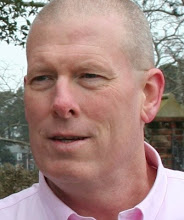Financial strategy: Knightians vs. Bayesians
Craig Torres from Bloomberg.com called me the other day to talk about Knightian uncertainty and Federal Reserve policymaking. He included some of my comments in his article.
The point of the article was that Fed Chair Ben Bernacke was taking a different line than former Chair Alan Greenspan. Greenspan tended to use changes in interest rates as a kind of insurance: cut rates when your instincts tell you that sharp market alterations may be on the horizon. Bernacke is more of a Bayesian: keep updating info for your models until your evaluation of the probability that something really bad is going to happen is high enough that you act. Greenspan's strategy would lead to quick cuts; Benacke's to delayed cuts.
Craig then quotes me on the Knightian origin of Greenspan's approach:
"Both [Bernacke's and Greenspan's] approaches have risks. Greenspan cited uncertainty as 'the defining characteristic' of the monetary policy landscape in an August 2003 speech. 'Only a limited number of risks can be quantified with any confidence,' he said.
"The speech was critical of models, and elevated the role of judgment. He invoked theories of Frank Knight, a University of Chicago economist from 1927 to 1955, to explain his ideas of risk management.
'Knight distinguished between risk and uncertainty: Risk is quantifiable, uncertainty is random. Managers 'would try to turn those uncertainties into knowable costs,' said Ross Emmett, a professor at James Madison College at Michigan State who has edited a collection of Knight's essays. 'They would purchase insurance.'"
My only quibble with Craig's comments about Greenspan's Knightian approach is that, for Knight, uncertainty is not random. In a random world, you can at least form a probability distribution of the possibilities. In an uncertain world, you cannot know what will happen, nor if it will be random or the result of a human action (Knight doesn't think the latter is ever "random"). You have to use judgment (Greenspan's point).
See Torres' entire article from September 13, 2007 here.
Labels: Bernacke, Emmett, Federal Reserve Policy, Frank Knight, Greenspan, Knightian uncertainty, Knightian uncertainty vs. Bayesian theory, Ross Emmett


0 Comments:
Post a Comment
<< Home